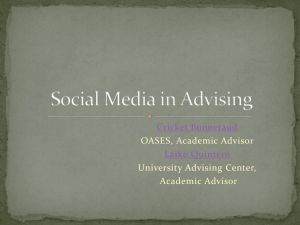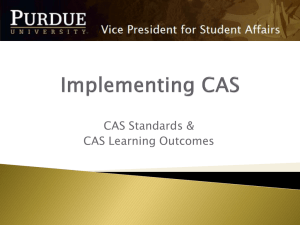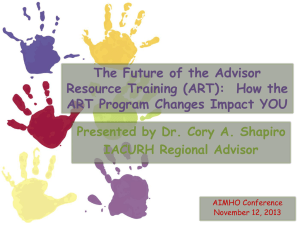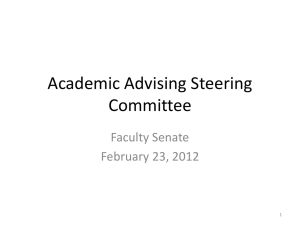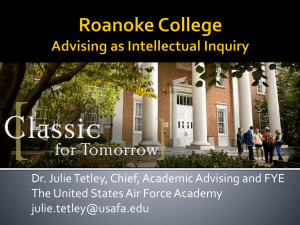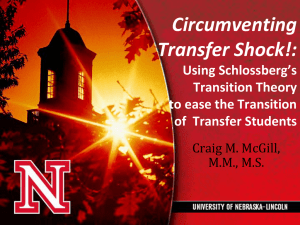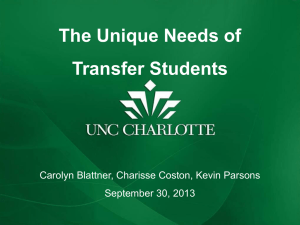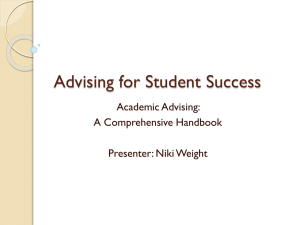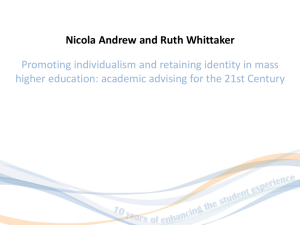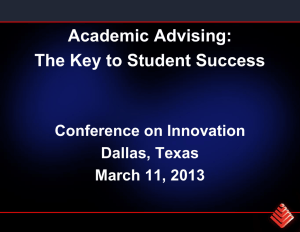Angie academic advising definition (3)
advertisement
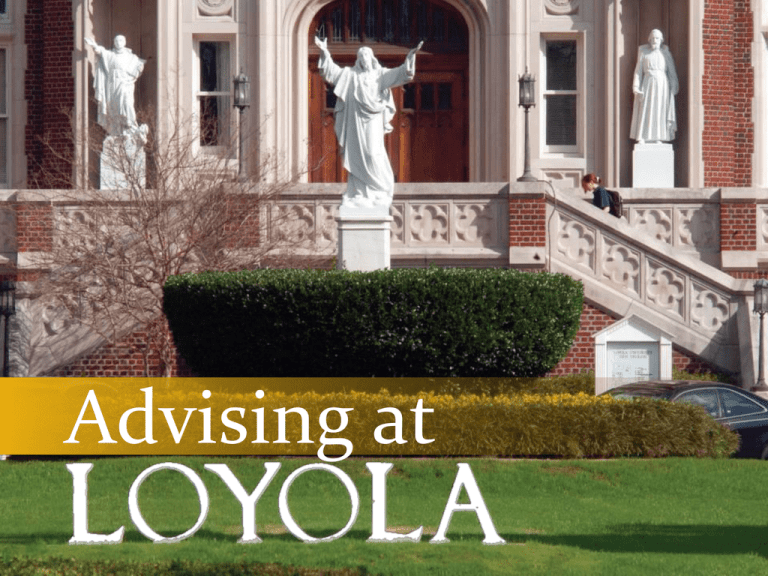
Advising at It is a decision-making process by which students realize their maximum educational potential by communication and information exchanges with an advisor; it is ongoing, multi-faceted, and the responsibility of both student and advisor. The advisor serves as a facilitator of communication, a coordinator of learning experiences through course and career planning and academic progress review, and an agent of referral to other campus agencies as necessary.” David S. Crockett, Ed. (1987). Advising Skills, Techniques and Resources: A Compilation of Materials Related to the Organization and Delivery of Advising Services. Iowa City, Iowa. ACT Corporation. Definition of Advising “Academic advising is a developmental process which assists students in the clarification of their life / career goals and in the development of educational plans for realization of these goals. The Jesuit vision of education implies further that students learn how to be critical, examine attitudes, challenge assumptions, and analyze motives. All of this is important if they are to be able to make decisions in freedom, the freedom that allows one to make love-filled and faithfilled decisions. Advising by Jesuit Values Jesuit education is: A call to human excellence, to the fullest possible development of all human qualities. This implies a rigor and academic excellence that challenges the student to develop all of his or her talents to the fullest. It is a call to critical thinking and disciplined studies, a call to develop the whole person, head and heart, intellect and feelings. Student and faculty success is affected by the learning environment. An institution provides appropriate academic support services to strengthen academic programs and ensure the success of students and faculty in meeting the goals of the educational programs. Academic support services may include, but are not limited to, academic teaching and resource centers, tutoring, academic advising, counseling, disability services, resource centers, adequate library, laboratories, information technology, and mentoring. SACS Advising Standards Academic support services pertain to students at all levels and to faculty and are consistent with the institution’s mission, enhance the educational experience, and contribute to the achievement of teaching and learning outcomes. Academic Advising: Students have interactive resources available for guidance in planning and implementing their academic programs Career Advising: Students have personalized interactive resources available for guidance in choosing and pursuing career paths AACSB Advising Standards Academic Assistance: Students have interactive resources available for out-of-class assistance with course materials and assignments Academic Advising: Incoming freshmen are advised by the associate dean, full-time academic advisor, and Portfolio Program staff. Upperclassmen are assigned faculty mentors in their major area to assist in further advising. Most students meet with their advisors multiple times during the semester, to discuss career options, or major / course selections. Career Advising: Full-scale career / internship advising is offered beginning in the freshman year through the College’s Business Portfolio program / office. Professional career advisor is on hand, assisted by the program director and other career / placement personnel. The program supports and integrates with the Loyola CDC. College of Bus. Practice Academic Assistance: Faculty post a minimum of 2 office hours per week per 3-credit hour course. Each student in the College of HUNS has an academic advisor in their major(s) and their minor(s) and is expected to work closely with their faculty advisor(s) throughout their academic career. Department Chairpersons make faculty advising assignments in consultation with the faculty member and each department in the College has a faculty point-person to assist with advising issues. College of HUNS DRAFT The College of HUNS is dedicated to nurturing students’ intellectual, personal, and professional development through faculty-lead academic advising. Intellectual mentoring assumes a good working relationship between advisors and students, and its success necessitates that expectations, both for faculty advisors and students, be clear, and that they be met. The primary purpose of academic advising is to help students explore and understand the relationship between their educational paths and future goals. How to Define Advising? Academic Advising, anchored in the Jesuit tradition of teaching and reflection, helps students acquire the knowledge and skills necessary to take full responsibility for completing an educational program consistent with their educational and professional aspirations. Faculty serve as the primary academic advisor for students in collaboration with professional staff advisors across campus. Successful academic advising at Loyola requires full pariticipation of the faculty advisor, the student, the college and the university.
